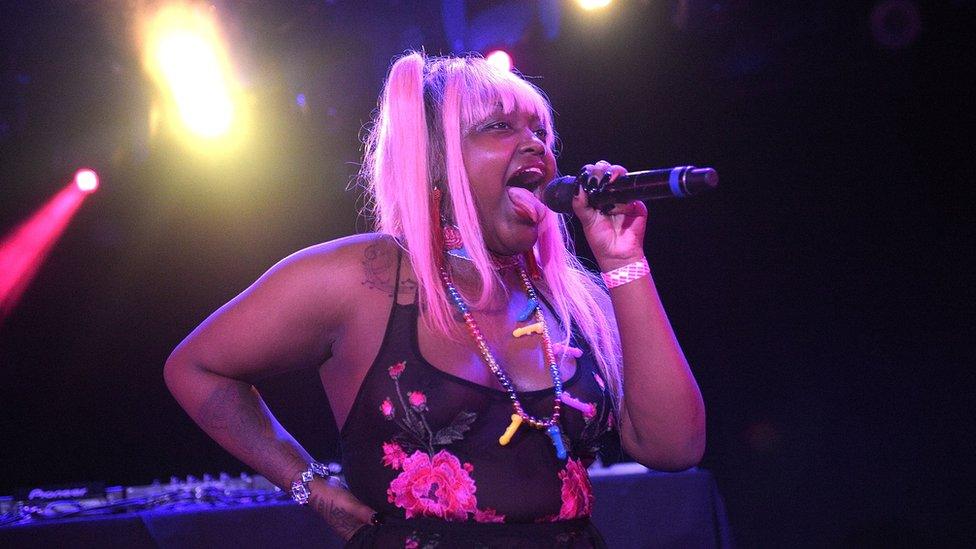Youth suicide: I tried to kill myself three times by 17
- Published
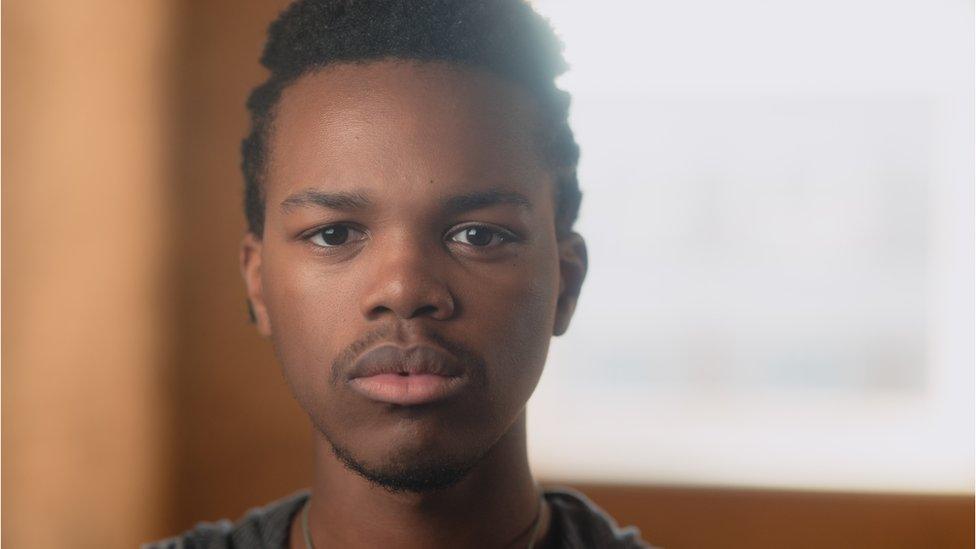
Ajuub, 19, is calling for a greater focus on prevention in mental health services
"The first time I tried I was 14, then 16 and then 17," says Ajuub, recalling the attempts he made to take his own life before he had even finished school.
Now 19, Ajuub says he has rediscovered his self-esteem, but only after overcoming involvement with gangs, manipulative relationships and what he calls a "toxic" home life.
Figures from the Office for National Statistics, external show 165 people in England between the ages of 10 and 19 took their lives in 2017 - a 29% rise from 2013.
On Thursday, in a bid to raise awareness of the issue, campaigners CrazyTalk hung 20 mannequins from Westminster Bridge - one for each of the young people who took their lives in London in 2017.
Ajuub, who co-founded the group, admits the sight may shock people. But he says it is an "act of desperation" to highlight "how difficult it is for young people to get the help we need".
His parents' divorce led to his father moving out of the family home, leaving Ajuub caring for a mother suffering from ill health.
By the time he started secondary school, he had "a lot of stress and anxiety".
He became "associated" with gangs, he says - adding he was involved in criminal activity, but does not elaborate.
"I ended up in a position where I was taken advantage of and manipulated and that gave me a really bad view of relationships," he says.
Ajuub felt "used" by those in gangs - and similarly betrayed by people he considered friends.
He saw a counsellor through his school in London, which helped, but with only one available for more than 1,000 pupils, Ajuub - like others - faced long waiting lists and limited time with mental health professionals.
He also questions the quality of support he received from some school staff, who, he says, were more concerned with avoiding "liability" than addressing the problems he faced.
And Ajuub is far from alone in complaining about both the waiting times for, and the quality of, support available to young people in England.

Information and advice
If you or someone you know is struggling with issues raised by this story, find support through BBC Action Line .

Even for those with strong support from their families, navigating youth mental health services can be tough.
Isaac, who is 18 and trans, has struggled with self-harm and disordered eating since starting secondary school.
He says his family are "very supportive" - but that a combination of pressures at school, bullying and a family history of mental illness left him with "constant" suicidal thoughts, which he has not acted upon.
Isaac was referred to child and adolescent mental health services (CAMHS) in 2015, but has faced new problems since.
"When I was at CAMHS my therapist mis-gendered me in front of my mum when my mum was trying really hard to respect my transition and use the right pronouns," Isaac says.
He adds that some GPs also seem to lack the necessary knowledge to advise trans people about their mental health.
"The experience of a lot of trans people there is that their mental health issues are pinpointed to their gender identity and we're told we'll feel better when we transition," he continues.
"The problem is you have to be mentally stable enough for them to be put onto hormone replacement therapy - and it's a bit of a contradiction when you're expected to feel better when you transition but you can't transition until you're doing better."
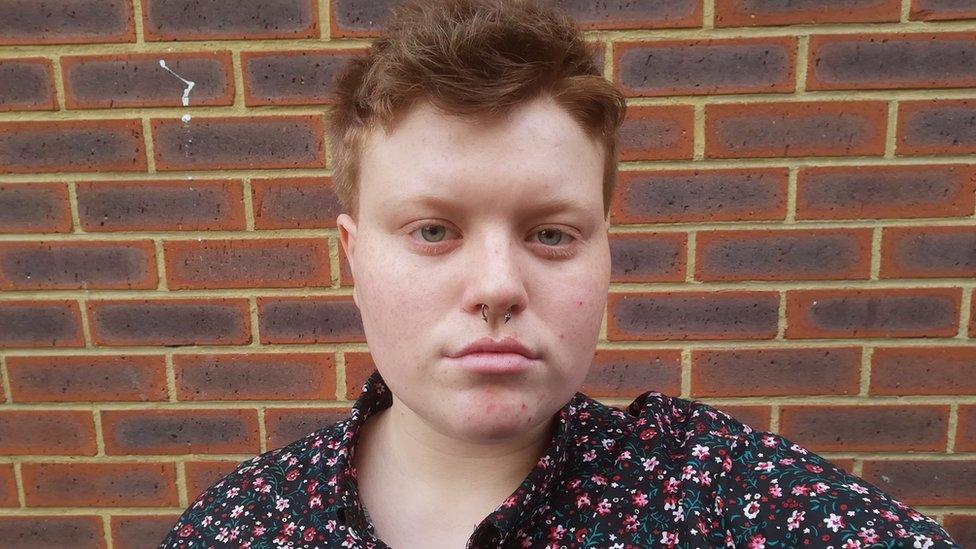
Isaac has struggled with self-harm and disordered eating
Edwina, an 18-year-old British-Nigerian woman from south-east London, also has complaints about the quality of support from both school counsellors and medical practitioners.
She says that she had been "managing or maybe repressing" things from her childhood until she reached sixth form - and then her mental health quickly deteriorated.
Not wanting to give up on her A-levels, Edwina visited her GP, but was given anti-depressants before even being diagnosed with depression, which made her "uncomfortable".
In her local Christian community, Edwina was diagnosed - but not in a medical sense. She was told she was "possessed".
"You're told it's just the devil working... you're told you need a strong spiritual life," she says.
Even at school, that theme continued. Edwina says her counsellor, who was also Christian, "tried to make me go to church".
"She was trying to be subtle but it wasn't that subtle."
She adds: "There's this thing in our community that if you're struggling with mental health you should go to church and pray and that will solve all your problems."
Edwina asked for a different counsellor but due to long waiting lists and a lack of provision, she eventually gave up and stopped seeing anyone.
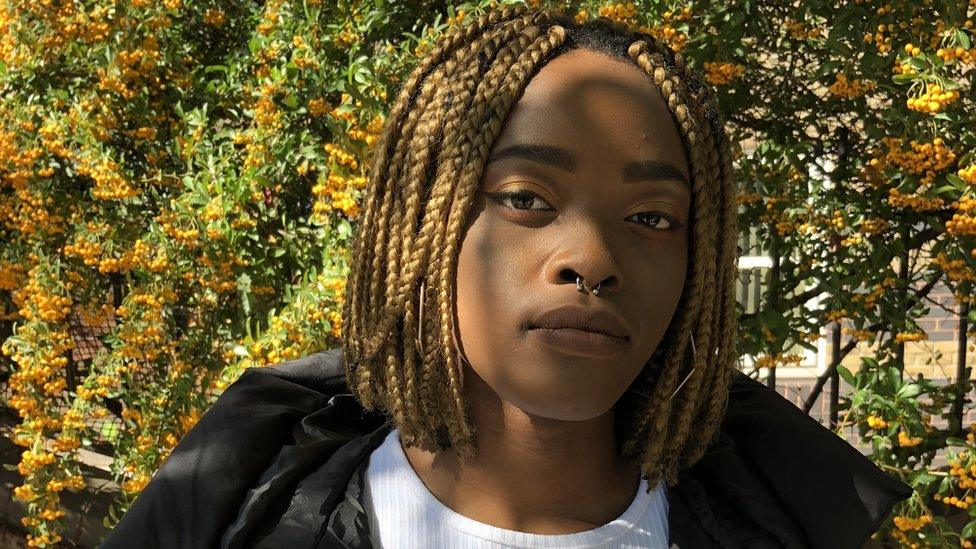
Her problems with mental health began to affect her attendance at school.
Eventually, Edwina - who attempted to take her life multiple times - was "off-rolled" from her school, six weeks before she was due to take her A-levels.
She says her school "no longer believed" in her or saw her "as a student worth their time".
Edwina had to borrow money to pay £690 to retake her A-levels at a school in north London the following year - adding stress and anxiety to a situation already heavily loaded with both.
A year ago, the government outlined proposed changes, external to youth mental health services. But those behind the CrazyTalk campaign, which began in summer 2018, describe the proposals as "a sticking plaster that won't address the underlying causes of youth suicide".
They are calling for:
an improvement on the proposed four-week waiting times for "non urgent" cases
the ability for young people to access youth services until they finish education, rather than when they turn 18
access to therapists at school for every pupil that needs one.
When asked what the government's priority should be, Ajuub says: "To create a care system that focuses as much on prevention as it does on treatment. It's about creating healthy environments for young people."
NHS England said its staff were "working hard to reduce suicide", adding that male suicide was at a 31-year low. A spokesman also said they were concerned the CrazyTalk event at Westminster was "potentially harmful and imitative".
The Department for Health has also been contacted for comment.
- Published7 November 2018
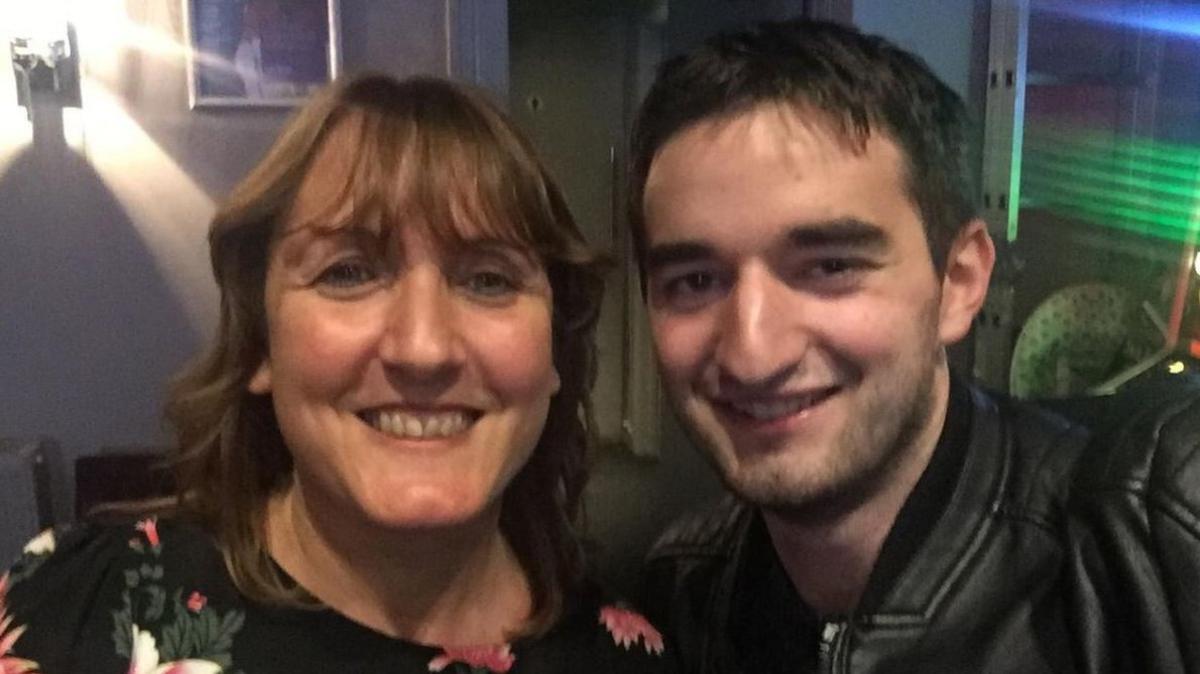
- Published28 March 2018
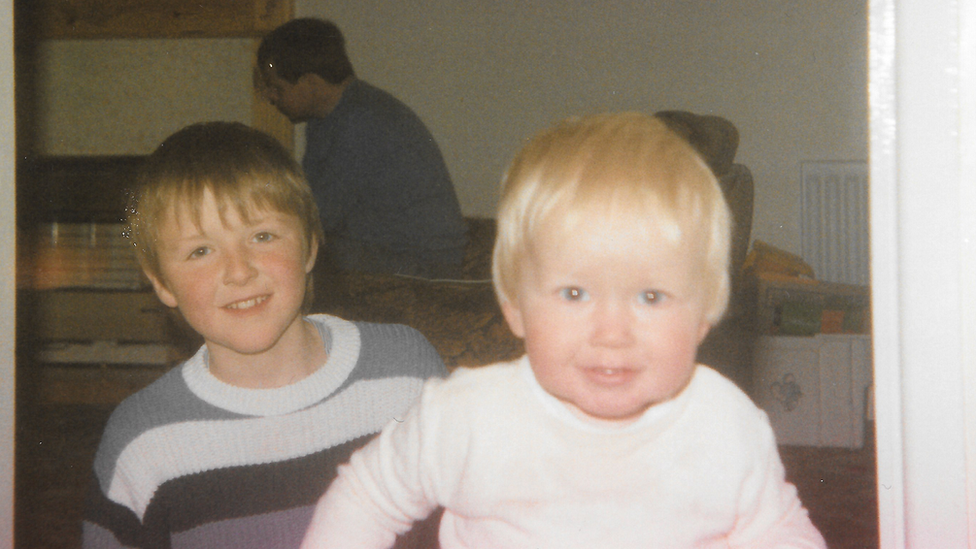
- Published26 November 2018
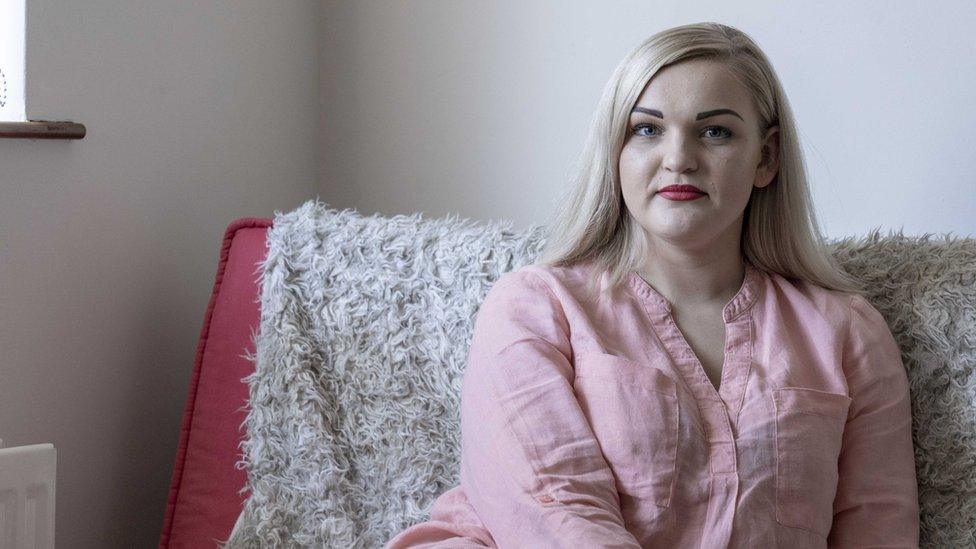
- Published8 January 2019
